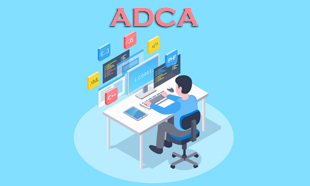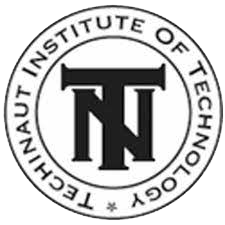3
221
The ADCA course prepares students for a wide range of career opportunities in the rapidly evolving field of IT
SHRI SAI COMPUTER COACHING INSTITUTE, located in Yenbodi, Amdi, Chandrapura, Maharashtra, offers a comprehensive one-year Advanced Diploma in Computer Application (ADCA) course. This program, operated under the Techinaut Institute of Technology franchise, is designed to provide students with a solid foundation in various aspects of computer applications, programming, and information technology. Through a combination of theoretical knowledge and practical training, the ADCA course prepares students for a wide range of career opportunities in the rapidly evolving field of IT.
THE OBJECTIVE OF THE COURSE:
The primary objective of the ADCA course is to equip students with advanced skills and knowledge in computer applications, software, and programming. By the end of the program, students will have gained proficiency in using various software tools, understanding computer networks, and solving complex problems through algorithmic thinking. The Course aims to prepare students for successful careers in the IT industry or further academic pursuits in computer science.
COURSE CURRICULUM:
1. Basics of Computer:
The Course begins with an introduction to computer hardware, software, and operating systems basics. Students learn about the components of a computer system, including the CPU, memory, storage devices, and input/output devices. They also gain an understanding of different types of software and operating systems.
2. Computer Appreciation:This module provides students with a historical overview of computers and their evolution. Students learn about the impact of computers on society, various applications of computers in different fields, and the role of technology in shaping the modern world.
3. Computer Organization:In this module, students delve deeper into computers' internal structure and organization. They learn about computer architecture, the functioning of the CPU, memory hierarchy, and input/output operations. The module also covers binary representation, logic gates, and data representation.
4. Operating System:Students are introduced to operating systems like Windows, Linux, and macOS. They learn about the role of an operating system in managing hardware resources, running applications, and providing a user interface. The module covers file management, process management, memory management, and system administration.
5. MS Word Processing:This module focuses on word processing skills using Microsoft Word. Students learn to create, format, edit, and manipulate text documents. They also learn about advanced features such as mail merge, document templates, styles, and macros.
6. MS Spreadsheet Package:Students gain proficiency in using Microsoft Excel for data analysis and manipulation. They learn to create and format spreadsheets, use formulas and functions for calculations, create charts and graphs, and analyze data using pivot tables.
7. MS Presentation Package:In this module, students learn how to create professional presentations using Microsoft PowerPoint. They learn about slide design, layout, animation, and multimedia integration. Students also learn how to deliver effective presentations and engage their audience.
8. Information Technology and Society:This module explores the impact of information technology on society, culture, and the economy. Students learn about the ethical, social, and legal issues related to the use of technology. They also explore emerging trends in information technology and their implications for individuals and society.
9. Introduction to Internet:Students are introduced to the InternetInternet and its role in communication, information sharing, and collaboration. They learn about the history of the Internet, basic Internet protocols, and services such as e-mail, web browsing, and social media.
10. Internet Network:This module covers the fundamentals of computer networks and the internet infrastructure. Students learn about network protocols, topologies, and technologies such as TCP/IP, Ethernet, Wi-Fi, and cellular networks. They also learn about network security and privacy issues.
11. E-mail:Students learn about electronic mail (e-mail) and its importance as a communication tool in the digital age. They learn how to create and manage e-mail accounts, send and receive e-mails, organize e-mail messages, and use e-mail etiquette.
12. Introduction to Programming:This module introduces students to the basics of programming concepts and logic. They learn about programming languages, syntax, variables, data types, control structures, and algorithms. Students also learn how to write and debug simple programs using a programming language such as Python or Java.
13. Algorithms for Problem Solving:Students learn about algorithms and their role in problem-solving. They learn to analyze problems, design algorithms, and implement solutions using algorithmic techniques such as divide-and-conquer dynamic programming and greedy algorithms. Students also learn about algorithm efficiency and complexity analysis.
14. Database Management System (DBMS):This module covers the fundamentals of database management systems (DBMS). Students learn about database models, relational databases, SQL (Structured Query Language), data normalization, database design, and basic database administration tasks.
15. Software Engineering:Students learn about the principles and practices of software engineering. They learn about software development methodologies, software requirements analysis, design principles, coding standards, testing techniques, and software maintenance.
16. Web Development:In this module, students learn about web development technologies and tools. They learn to create and design static and dynamic web pages using HTML, CSS, JavaScript, and web development frameworks. Students also learn about web hosting, domain registration, and website deployment.
17. Project Work:The Course concludes with a practical project where students apply their knowledge and skills to develop a software application or website. This project allows students to showcase their abilities and gain real-world experience in software development.
CONCLUSION:
The Advanced Diploma in Computer Application (ADCA) course at Shri Sai Computer Coaching Institute offers a comprehensive curriculum covering various topics in computer applications, programming, and information technology. Through a blend of theoretical knowledge and hands-on practical training, students are equipped with the skills and expertise required to succeed in the dynamic field of IT. Whether pursuing a career in software development, database management, web development, or IT consultancy, graduates of the ADCA course are well-prepared to excel in their chosen field.
Lectures = 260 HRS
Practical/Tutorials = 260 HRS
Total = 520 HRS
Course Reviews
5
- 5 stars0
- 4 stars0
- 3 stars0
- 2 stars0
- 1 stars0



VERY HELPFUL
GOOD COURSE
At my Institute faculties are very well educated and highly cooperative in teaching.